Economy
Most Canadians ‘don’t support and can’t afford’ Trudeau’s 23% carbon tax hike on April 1: poll

From LifeSiteNews
The 31 percent who support the tax increase were mostly between the ages of 18 and 34 and lived in urban areas.
A new poll has found that most Canadians oppose the upcoming carbon tax hike of 23 percent on April 1.
According to a February 27 Leger poll commissioned by the Canadian Taxpayers Federation (CTF), 69 percent of Canadians oppose Prime Minister Justin Trudeau’s April 1st tax hike which will increase the federal carbon tax to 17 cents per liter of gasoline, 21 cents per liter of diesel, and 15 cents per cubic meter of natural gas.
“The poll proves the vast majority of Canadians don’t support and can’t afford another carbon tax hike,” CTF federal director Franco Terrazzano said. “If Trudeau and his MPs care about making life more affordable for Canadians, then the least they could do is not hike their carbon tax.”
The poll, which questioned 1,590 Canadians over the age of 18 between February 23 and 25, found that 71 percent of Canadians between the ages of 35 and 54 and over the age of 55 oppose the tax increase. For those between 18 and 34 the figure sits at a similar 62 percent.
Additionally, those who lived in rural parts of Canada were more likely to oppose the tax hike, with three-quarters of rural respondents being opposed, along with 70 per cent of suburban and 63 per cent of urban respondents.
Notably, opposition to the tax increase largely came from provinces outside of British Columbia and Quebec, with those residing in Saskatchewan and Manitoba being the most opposed.
The 31 percent who support the tax increase were mostly between the ages of 18 and 34 and lived in urban areas.
Conservative Party leader Pierre Poilievre denounced the tax hike, promising that his government would “axe the tax” if elected.
“Trudeau is hiking his carbon tax 23% on April 1st on his path to quadrupling it,” he wrote on X, formerly known as Twitter. “Canadians can’t afford to eat, heat and house themselves. Not worth the cost.”
Trudeau’s carbon tax, framed as a way to reduce carbon emissions, has cost Canadian households hundreds of dollars annually despite rebates.
The increased costs are only expected to rise, as a recent report revealed that a carbon tax of more than $350 per tonne is needed to reach Trudeau’s net-zero goals by 2050.
Currently, Canadians living in provinces under the federal carbon pricing scheme pay $65 per tonne, but the Trudeau government has a goal of $170 per tonne by 2030.
The Trudeau government’s current environmental goals – which are in lockstep with the United Nations’ 2030 Agenda for Sustainable Development – include phasing out coal-fired power plants, reducing fertilizer usage, and curbing natural gas use over the coming decades.
The reduction and eventual elimination of so-called “fossil fuels” and a transition to unreliable “green” energy has also been pushed by the World Economic Forum – the globalist group behind the socialist “Great Reset” agenda in which Trudeau and some of his cabinet are involved.
However, some western provinces have declared they will not follow the regulations but instead focus on the well-being of Canadians.
Both Alberta and Saskatchewan have repeatedly promised to place the interests of their people above the Trudeau government’s “unconstitutional” demands while consistently reminding the federal government that their infrastructures and economies depend upon oil, gas, and coal.
“We will never allow these regulations to be implemented here, full stop,” Alberta Premier Danielle Smith recently declared. “If they become the law of the land, they would crush Albertans’ finances, and they would also cause dramatic increases in electricity bills for families and businesses across Canada.”
Saskatchewan Premier Scott Moe has likewise promised to fight back against Trudeau’s new regulations, saying recently that “Trudeau’s net-zero electricity regulations are unaffordable, unrealistic and unconstitutional.”
“They will drive electricity rates through the roof and leave Saskatchewan with an unreliable power supply. Our government will not let the federal government do that to the Saskatchewan people,” he charged.
Economy
Young Canadians are putting off having a family due to rising cost of living, survey finds

From LifeSiteNews
An April study has found that 42% of Gen Z and 39% of Millennials are putting off starting families due to a lack of work-life balance spurred by an increase in the cost of living.
A survey has found that more Canadians are delaying starting a family due to a lack of work-life balance spurred by the rising cost of living.
According to an April 24 Express Employment Professionals-Harris Poll survey, one-third of employed job seekers stated that they are putting off starting a family due to a lack of work-life balance, including 42% of Gen Z and 39% of Millennials.
“The most common thing I hear from candidates who are putting off starting a family is that the cost of living is too high,” Jessica Culo, an Express franchise owner in Edmonton, Alberta stated.
“We definitely hear more and more that candidates are looking for flexibility, and I think employers understand family/work balance is important to employees,” she added.
Two-thirds of respondents further stated that they believe it’s essential that the company they work for prioritizes giving its employees a good work-life balance as they look to start a family. This included 77% of Gen Z and 72% of Millennials.
The survey comes as Canada’s fertility rate hit a record-low of 1.33 children per woman in 2022. According to the data collected by Statistics Canada, the number marks the lowest fertility rate in the past century of record keeping.
Sadly, while 2022 experienced a record-breaking low fertility rate, the same year, 97,211 Canadian babies were killed by abortion.
Canadians’ reluctance or delay to have children comes as young Canadians seem to be beginning to reap the effects of the policies of Prime Minister Justin Trudeau’s government, which has been criticized for its overspending, onerous climate regulations, lax immigration policies, and “woke” politics.
In fact, many have pointed out that considering the rising housing prices, most Canadians under 30 will not be able to purchase a home.
Similarly, while Trudeau sends Canadians’ tax dollars oversees and further taxes their fuel and heating, Canadians are struggling to pay for basic necessities including food, rent, and heating.
A September report by Statistics Canada revealed that food prices are rising faster than the headline inflation rate – the overall inflation rate in the country – as staple food items are increasing at a rate of 10 to 18 percent year-over-year.
While the cost of living has increased the financial burden of Canadians looking to rear children, the nation’s child benefit program does provide some relief for those who have kids.
Under the Canadian Revenue Agency’s benefit, Canadians families are given a monthly stipend depending on their family income and situation. Each province also has a program to help families support their children.
Young Canadians looking to start a family can use the child and family benefits calculator to estimate the benefits which they would receive.
Regardless of the cost of raising children, the Catholic Church unchangeably teaches that it is a grave sin for married couples to frustrate the natural ends of the procreative act through contraceptives, abortion or other means.
Such wisdom has even bled into the mainstream in recent years, with non-Catholic pundits like America’s Tucker Carlson advocating that young people “Get married when you’re too young, have more kids than you can afford, take a job you’re not qualified for, live boldly.”
Economy
Today’s federal government—massive spending growth and epic betting
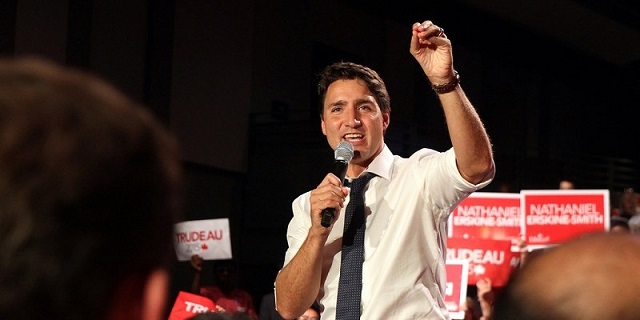
From the Fraser Institute
One can legitimately ask whether the federal government has simply grown too big, complex and unwieldy to be managed at all
The Trudeau government’s 2024 budget landed with a thud, evoking little enthusiasm and drawing spirited criticism from business leaders, investors, provincial premiers and (of course) the opposition parties. Several elements of the budget have garnered outsized attention, notably the pledge to run endless deficits, the imposition of higher capital gains taxes, and various new programs and policy initiatives intended to address Canada’s housing crisis.
But the budget includes a few eye-catching data points that have been downplayed in the subsequent political and media commentary.
One is the sheer size of the government. The just-completed fiscal year marked a milestone, as Ottawa’s total spending reached half a trillion dollars ($498 billion, to be exact, excluding “actuarial losses”). According to the budget, the government will spend $95 billion more in 2024-25 than it planned only three years ago, underscoring the torrid pace of spending growth under Prime Minister Trudeau.
One can legitimately ask whether the federal government has simply grown too big, complex and unwieldy to be managed at all, even if we assume the politicians in charge truly care about sound management. How many parliamentarians—or even cabinet ministers—have a sufficient understanding of the sprawling federal apparatus to provide meaningful oversight of the vast sums Ottawa is now spending?
The ArriveCAN scandal and chronic problems with defence procurement are well-known, but how good a job is the government doing with routine expenditure programs and the delivery of services to Canadians? The auditor general and the Parliamentary Budget Officer provide useful insights on these questions, but only in a selective way. Parliament itself tends to focus on things other than financial oversight, such as the daily theatre of Question Period and other topics conducive to quick hits on social media. Parliament isn’t particularly effective at holding the government to account for its overall expenditures, even though that ranks among its most important responsibilities.
A second data point from the budget concerns the fast-rising price tag for what the federal government classifies as “elderly benefits.” Consisting mainly of Old Age Security and the Guaranteed Income Supplement, these programs are set to absorb $81 billion of federal tax dollars this year and $90 billion by 2026-27, compared to $69 billion just two years ago. Ottawa now spends substantially more on income transfers to seniors than it collects in GST revenues. At some point, a future government may find it necessary to reform elderly benefit programs to slow the relentless cost escalation.
Finally, the budget provides additional details on the Trudeau government’s epic bet that massive taxpayer-financed subsidies will kickstart the establishment of a major, commercially successful battery and electric vehicle manufacturing “supply chain” in Canada. The government pledges to allocate “over $160 billion” to pay for its net-zero economic plan, including $93 billion in subsidies and incentives for battery, EV and other “clean” industries through 2034-35. This spending, the government insists, will “crowd in more private investment, securing Canada’s leadership” in the clean economy.
To say this is a high-risk industrial development strategy is an understatement. Canada is grappling with an economy-wide crisis of lagging business investment and stagnant productivity. Faced with this, the government has chosen to direct hitherto unimaginable sums to support industries that make up a relatively small slice of the economy. Even if the plan succeeds, it won’t do much to address the bigger problems of weak private-sector investment and slumping productivity growth.
Author:
-

 Uncategorized2 days ago
Uncategorized2 days agoMaking Alberta a geothermal energy leader
-

 Alberta2 days ago
Alberta2 days agoThree Calgary massage parlours linked to human trafficking investigation
-

 Alberta2 days ago
Alberta2 days agoAlberta’s vision for passenger rail
-

 COVID-192 days ago
COVID-192 days agoStates move to oppose WHO’s ‘pandemic treaty,’ assert states’ rights
-
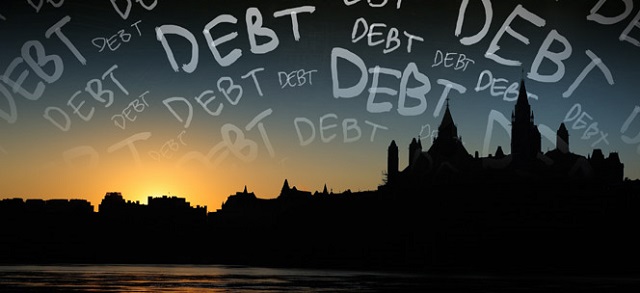
 Business1 day ago
Business1 day agoParliamentary Budget Officer forecasts bigger deficits for years to come
-
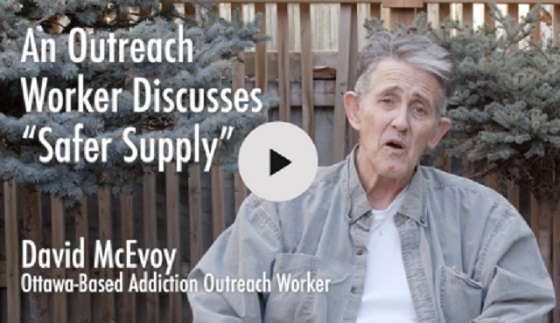
 Addictions1 day ago
Addictions1 day agoMust Watch: Addiction worker estimates 90% of “safer supply” drugs resold on black market
-
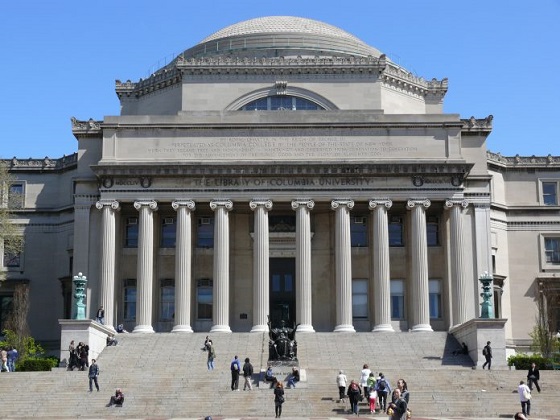
 conflict1 day ago
conflict1 day agoColumbia on Lockdown After pro-Palestinian Protesters Take Over Building, Hold Janitors Hostage
-
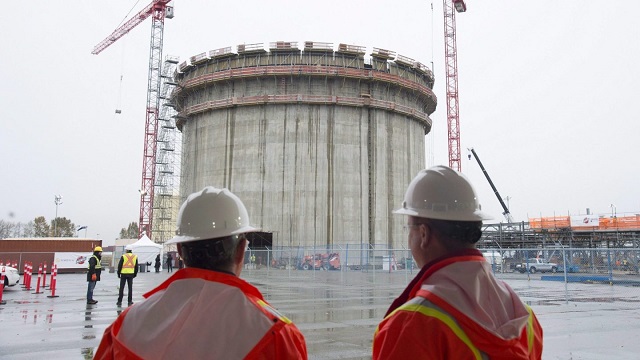
 Canadian Energy Centre1 day ago
Canadian Energy Centre1 day agoNorth America LNG project cost competitiveness









